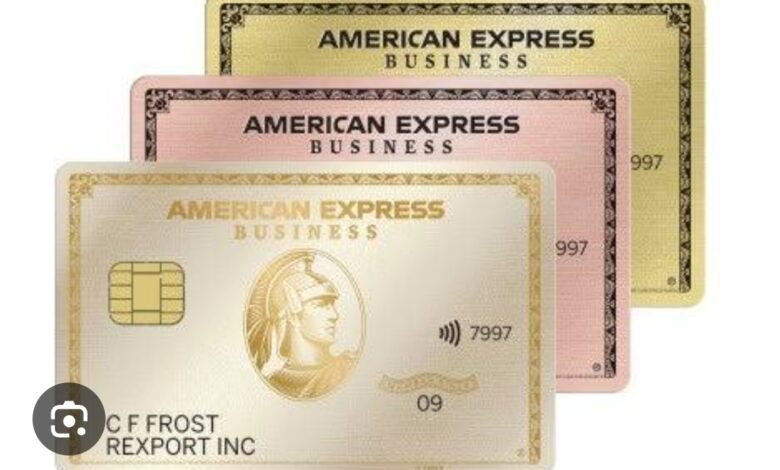The Easiest ways for Africans to Obtain an American Credit Card

For many in Africa, an American credit card represents more than just a payment tool; it’s a gateway to international online shopping, seamless travel, and building a global financial footprint. While direct applications from African residents can be challenging due to U.S. credit history requirements, several viable avenues exist. This article explores the most accessible paths to securing an American credit card for individuals residing in Africa.
The Core Challenge: U.S. Credit History
The primary hurdle for non-U.S. residents seeking an American credit card is the lack of a U.S. credit history. American banks rely heavily on credit scores generated by credit bureaus like Experian, Equifax, and TransUnion to assess risk. Without a track record of borrowing and repayment within the U.S. system, traditional credit card applications are often denied.
Path 1: Secured Credit Cards – The Foundation Builder
One of the most effective and straightforward methods for anyone without a U.S. credit history, including those in Africa, is to apply for a secured credit card.
* How it works: With a secured credit card, you provide a cash deposit to the issuing bank, which typically becomes your credit limit. For example, a $500 deposit would give you a $500 credit limit. This deposit acts as collateral, significantly reducing the risk for the bank.
* Building Credit: As you use the card responsibly and make on-time payments, the issuer reports your activity to the major U.S. credit bureaus. This consistent positive reporting is crucial for building a U.S. credit history over time.
* Key Consideration: While some U.S. banks may require you to have a U.S. address and/or Social Security Number (SSN) or Individual Taxpayer Identification Number (ITIN) to open even a secured card, certain financial institutions are more lenient. Research banks that cater specifically to non-residents or those with limited U.S. presence. BB Americas Bank, for instance, offers secured credit cards for existing international clients.
Path 2: Leveraging Existing International Relationships (e.g., American Express)
Some international financial institutions, particularly those with a strong global presence, may offer a pathway for their existing customers to obtain a U.S. credit card.
* American Express Global Transfer: If you already hold an American Express card in your home country in Africa, you may be eligible for their “Global Transfer” program. This program allows you to leverage your existing Amex credit history to apply for a U.S.-issued Amex card, often without the need for a U.S. SSN or extensive U.S. credit history. This is often cited as one of the “easiest” ways for those with a strong financial standing internationally.
Path 3: Virtual U.S. Debit/Prepaid Cards with U.S. Billing Addresses
While not traditional credit cards, virtual U.S. debit or prepaid cards can serve a similar purpose for online transactions and can sometimes facilitate payments that require a U.S. billing address.
* How they work: Services like StatesCard and Wise (formerly TransferWise) offer virtual U.S. card numbers and, in some cases, a U.S. billing address. These cards are typically prepaid or linked to a multi-currency account, meaning you load funds onto them before use.
* Benefits: They are excellent for online shopping with U.S. retailers that might otherwise block international cards, subscribing to U.S. streaming services, or paying for apps in U.S. app stores.
* Limitations: These are generally not credit-building tools and do not provide a credit line. They function more like debit cards. However, for the immediate need of having a U.S.-accepted payment method, they are a quick and convenient solution.
Path 4: Co-Signer or Authorized User
If you have a trusted friend or family member in the U.S. with excellent credit, they could potentially help.
* Co-Signer: A co-signer takes equal responsibility for the debt, making the bank more likely to approve the application. This is a significant responsibility for the co-signer, as any missed payments will negatively impact their credit.
* Authorized User: The U.S. resident can add you as an authorized user to their existing U.S. credit card. This means you get a card linked to their account, and your credit report may benefit from their responsible usage, helping you build your own U.S. credit history over time. However, it’s crucial to have clear agreements on spending and repayment to protect the primary cardholder’s credit.
Essential Considerations for African Residents
* Proof of Identity: You will need a valid passport and potentially other forms of identification.
* U.S. Address: While not always strictly required for some options (like Global Transfer), having a legitimate U.S. mailing address (even a friend’s or a mail forwarding service) can significantly simplify the application process for many U.S. financial products.
* ITIN (Individual Taxpayer Identification Number): For those who don’t qualify for an SSN but need to file U.S. tax returns, an ITIN can be helpful in opening U.S. bank accounts and applying for certain financial products.
* Income Verification: Be prepared to provide proof of income, even if it’s from an African source, to demonstrate your ability to repay.
* Patience and Persistence: Building U.S. credit from abroad takes time. Start with a secured card, use it responsibly, and gradually explore other options as your credit history develops.
While securing an American credit card from Africa might seem complex, the key lies in understanding the U.S. credit system and leveraging the available pathways designed for non-residents. By starting with foundational steps like secured cards or exploring international transfer programs, individuals in Africa can successfully build their U.S. financial presence.
Source: Thepressradio.com





